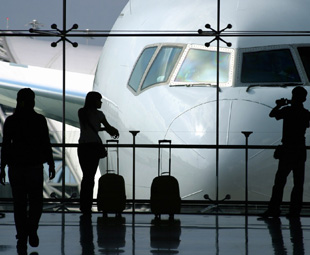Gaining altitude

The International Air Transport Association (IATA) has announced global passenger traffic results for September. It shows demand growth of 5,3 percent (measured in revenue passenger kilometres or RPKs) over September 2013.
This continues the positive growth trend for passenger demand, even though the performance was slightly below the August year-over-year rise of 6,3 percent.
“Overall, demand for passenger travel is growing in line with expectations,” says Tony Tyler, IATA’s director general and CEO. “We saw some shifting of the sources of that growth in September, however, largely driven by economic factors. The strengthening of the United States and Asian economies was offset by weakness in Europe and Latin America.”
Closer to home, African airlines experienced a 1,8 percent rise in international RPKs in September compared to a year ago, down significantly from August year-over-year growth of seven percent.
The IATA states that the deceleration in growth rates can’t be immediately interpreted as a trend change as significant volatility in volumes exists for this region. It adds that the effect of any Ebola-related traffic downturn is mostly restricted to Guinea, Liberia and Sierra Leone, and that these markets comprise a very small proportion of overall African traffic.
Adverse economic developments in some parts of the continent are, reportedly, responsible for the weakness in international air travel for regional carriers. South Africa has managed to avoid entering a recession, however, which could help moderate downward pressure on air travel. Capacity rose 2,6 percent and the load factor fell 0,6 percentage to 70,5 percent; the lowest among all regions.
“There are a lot of risks out there – growing weakness in key economies such as Europe and Brazil, the potential threat of Ebola to public confidence in flying, and the impact of political instability in various parts of the world,” says Tyler. “The positive economic developments in Asia and the United States continue to underpin profitability, but it is a delicate balancing act.”
Published by
Focus on Transport
focusmagsa




 !
From 1 Apri
!
From 1 Apri

 Big news from FOCUS on Transport + Logist
Big news from FOCUS on Transport + Logist





 FUSO: Driving the Future of Mobile Healthc
FUSO: Driving the Future of Mobile Healthc



 A brand
A brand




 Wondering about the maximum legal load for a
Wondering about the maximum legal load for a 
 The MAN hTGX powered by a hydrogen combus
The MAN hTGX powered by a hydrogen combus

 Exciting News for South African Operators
Exciting News for South African Operators
